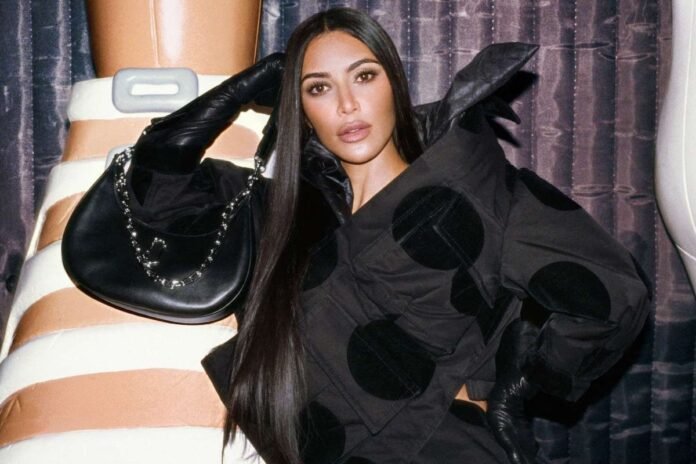The Kardashian Effect: Kim Kardashian and the Marc Jacobs Controversy
Since the rise of the Kardashian family into the public eye, they have become synonymous with celebrity culture, branding, and marketing. Kim Kardashian, in particular, has taken it upon herself to dominate the advertising landscape, leading many to accuse her of monopolizing campaigns across various industries. This phenomenon has sparked discussions about celebrity influence, brand identity, and the expectations of consumers in the fashion world.
Kim Kardashian: A Brand in Her Own Right
Kim Kardashian is not just a reality TV star; she has evolved into a powerful brand. With her name attached to a multitude of ventures—from beauty products to shapewear—Kardashian has cultivated a persona that resonates with millions. Her ability to generate buzz and drive sales has made her a sought-after figure in advertising. However, this very success has led to criticism, particularly regarding her role in campaigns for other established brands.
The Marc Jacobs Campaign
Recently, Kim Kardashian became the face of the renowned fashion brand Marc Jacobs, igniting a fresh wave of controversy. The announcement was met with mixed reactions, as many fans and critics took to social media to express their dissatisfaction. The campaign, which was promoted as featuring "new faces," raised eyebrows when Kardashian, a well-known figure, was chosen as the focal point.
The campaign’s promotional image, shot by film director Tyrone Lebon and styled by creative director Alastair McKimm, showcased a close-up of Kardashian’s right eye and lips. While the artistic direction was praised, the choice of Kardashian as the face of the brand was met with backlash. Critics argued that her presence overshadowed the intention of introducing new talent, leading to accusations that she was monopolizing the spotlight.
Social Media Backlash
The backlash against Kardashian’s involvement in the Marc Jacobs campaign was swift and vocal. Users flooded the brand’s official social media accounts with comments expressing their disappointment. Many felt that Kardashian’s established celebrity status detracted from the campaign’s goal of highlighting emerging talent. Phrases like "enough of Kim Kardashian" echoed across platforms, revealing a desire among some consumers for fresh faces in the fashion industry.
This reaction is not an isolated incident; it reflects a broader sentiment within the fashion community. Many consumers are increasingly advocating for diversity and representation, seeking to see new and varied faces in advertising. The frustration directed at Kardashian underscores a tension between established celebrity brands and the desire for innovation and inclusivity in fashion.
The Cycle of Celebrity and Brand Identity
Kardashian’s ability to generate controversy is not new. Throughout her career, she has often found herself at the center of debates about authenticity, representation, and the commercialization of personal brands. Critics argue that her overwhelming presence in advertising campaigns can stifle opportunities for lesser-known talents, creating a cycle where only a few names dominate the conversation.
This phenomenon raises important questions about the nature of branding in the modern age. As consumers become more discerning, the expectation for brands to showcase a diverse range of voices and faces becomes increasingly pronounced. The backlash against Kardashian’s involvement in the Marc Jacobs campaign serves as a reminder that while celebrity influence is powerful, it is not without its limits.
The Future of Celebrity in Fashion
As the fashion industry continues to evolve, the role of celebrities like Kim Kardashian will undoubtedly remain a topic of discussion. The tension between established figures and emerging talent will likely persist, prompting brands to navigate the delicate balance between leveraging celebrity influence and fostering new voices.
In the case of Marc Jacobs, the controversy surrounding Kardashian’s campaign may serve as a catalyst for change. Brands may be encouraged to rethink their strategies, seeking to amplify diverse perspectives while still engaging with the star power that celebrities bring. The conversation sparked by this campaign is a reflection of a larger cultural shift, where consumers are demanding more from the brands they support.
In summary, the intersection of celebrity culture and branding continues to shape the fashion landscape. Kim Kardashian’s involvement in the Marc Jacobs campaign has reignited discussions about representation, authenticity, and the future of advertising in an increasingly competitive market. As the industry adapts, it will be fascinating to see how brands respond to the evolving expectations of their audiences.

